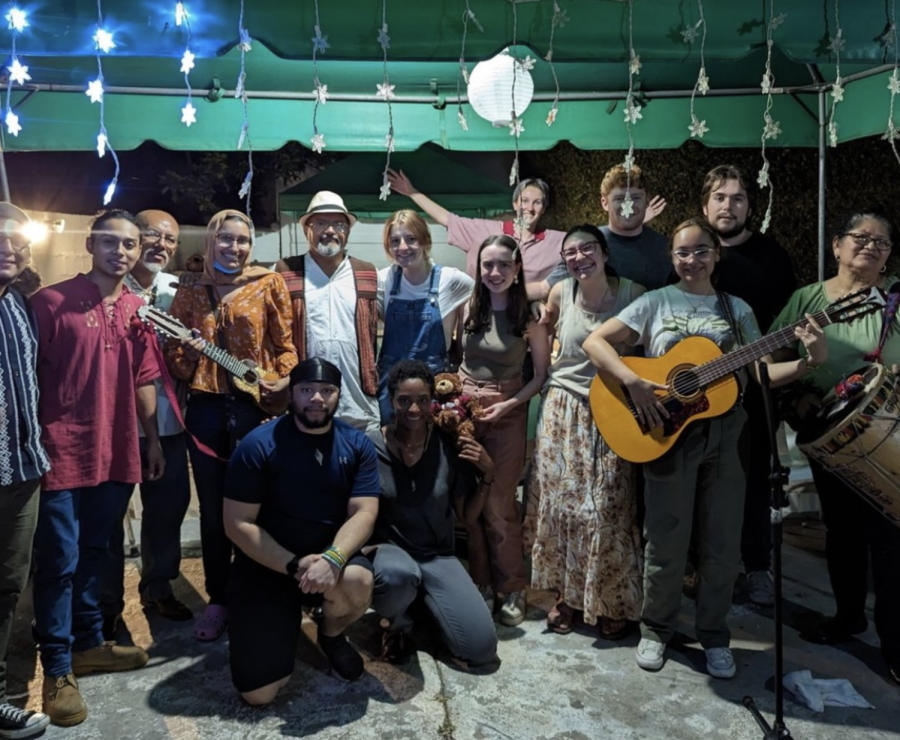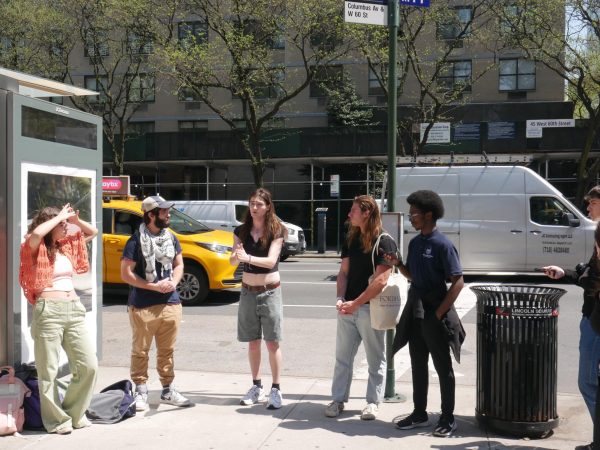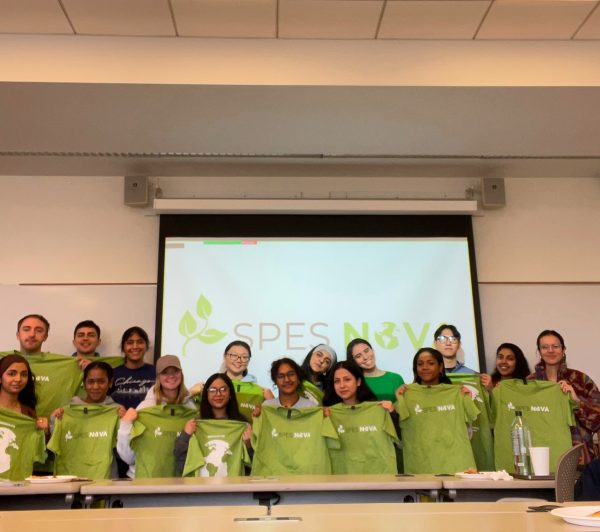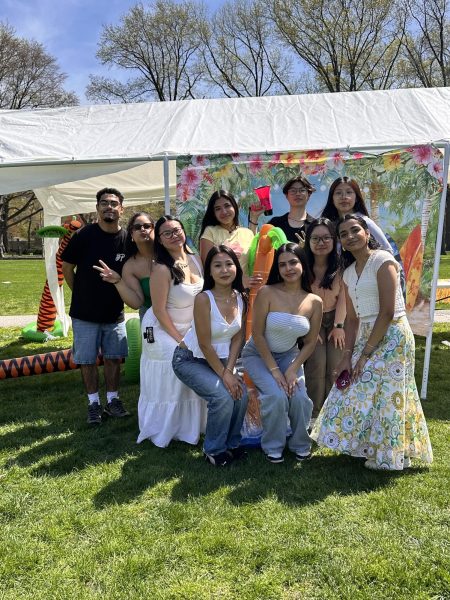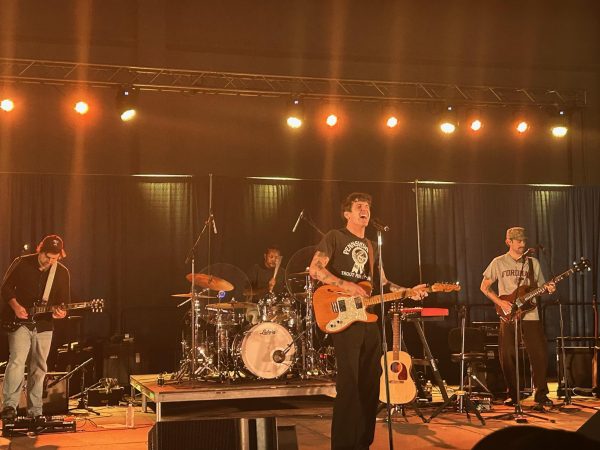Global Outreach Celebrates Its 60th Year
The Center for Community Engaged Learning (CCEL) has launched a campaign for one of their most popular programs, Global Outreach (¡GO!). Celebrating its 60th year, ¡GO! is one of the most unique ways to put your Fordham’s education into practice. ¡GO! is a “service and cultural immersion program rooted in social justice awareness and community engagement… driven by Fordham’s Jesuit mission of cultivating diverse leaders in a global society.”
Vanessa Rotondo, the associate director of Campus Engagement and senior advisor for Ignatian Leadership, offered some wisdom about ¡GO! over its 60 year history. “Historically, Global Outreach has gone through a few iterations as the needs and expectations of students have evolved.” The first ¡GO! program was in 1972; it included 27 students for a two-week experience in Mexico. This ran successfully for almost a decade, with the addition of a project to Peru demonstrating the growing student interest. Up until CCEL’s establishment in 2016, ¡GO! ran as a club, with anywhere from 30-60 programs in progress at a time.
While the core mission of the program has remained, the original model didn’t reach farther than having “conversations about charity versus social justice, Ignatian spirituality, how to build a community,” Rotondo explained. “In 2016, Fordham participated in the Mission Priority Examen, which is the Jesuit standardization of mission…[wherein] vice presidents of mission from other Jesuit institutions evaluated how we fulfilled our University mission across the board.” From their recommendations, CCEL was born.
¡GO! operates in three parts: formation, immersion and sustainable outcomes. Under the guidance of the Division of Mission, Rotondo explained that “everything shifts to a level of critical service learning, rooting partner’s voices in the educational experience of students. Global Outreach is informed by the Ignatian Pedagogical Paradigm, which takes its roots in the original constitutions of the Society of Jesus.”
“There’s the direct translation of the correlative value of the Ignatian Pedagogical Paradigm in tandem with the formation [of each delegation], and then your formation reflects the immersion,” Rotondo continued. “We bring the global partner into those formation conversations… that’s where that dialogue comes in, and that’s a big shift from how trips were approached in the past.” This intentional approach to ¡GO! projects allows for each group of students to contextualize their trip within their holistic education as a Fordham student.
When asked about the expansion of the program, Rotondo also shared her goals for the future growth of the program: “When we do build out our Global Outreach map, we are being intentional with the Ignatian connection there… We reflect on the diasporic immediate communities surrounding Fordham, and the impacts of having delegations learn and engage with relevant global communities. For example, [CCEL] works closely with different Latin American communities. When a group of students goes to El Salvador, for example, they have the opportunity to continue engaging with that community in a meaningful way when they return with the Salvadoran community [in the Bronx].”
One student leader, Jacob Weinberg, FCRH ’24, shared his experiences with ¡GO! throughout his time at Fordham. As a freshman during the fall 2020 virtual semester, Weinberg jumped at the opportunity to participate in student activities; the ¡GO! virtual projects served as a needed outlet to meet students who cared about important issues on a global scale. His virtual ¡GO! project to El Salvador has since turned into a multi-year sustainable outcome initiative, the culmination being a fully in-person delegation to the country over the break.
The virtual project centered on the modern realities for Salvadoran people reckoning with their history and understanding their hopes for the future. Weinberg shared that this experience “changed how I understood myself and the world.” He noted that learning about women’s rights in Latin America completely shifted his perspective: “[Women’s equity] is a global issue that is defined uniquely all over the world.”
Christians for Peace in El Salvador (CRISPAZ) is one of the primary community partners in El Salvador. The organization is “dedicated to building bridges of solidarity between the Church of the poor and marginalized communities in El Salvador and communities in the US… through mutual accompaniment.” CRISPAZ “strives for peace, justice and human liberation,” connecting students with leaders of organizations that strive for the same goals on a local level all over El Salvador.
Over the holiday break, Weinberg led a delegation of Fordham students on a ¡GO! trip to El Salvador, this time in person. Reflecting on the differences between his ¡GO! experiences, Weinberg explained that being a leader completely shifted how he contextualized and received the project. “The leader supports the participants in the intensive preparation and engagement with new communities in live time,” said Weinberg. Although it was admittedly challenging to plan and execute a project over 2,000 miles away, Weinberg “loved being able to see the group grow together.”
Weinberg emphasized his hopes for students who are interested in ¡GO! to apply to the program. Echoing the Ignatian sentiment of “being bothered” by the injustices of the world, he wants students to “feel energized to participate in local issues” in addition to learning about their global implications through their experience with ¡GO!.
Sophia Michelangelo, FCRH ’24, is another student leader who feels as though she’s been transformed by her ¡GO! experiences. Growing up in a Catholic high school, Michelangelo felt as though she’d always been steered in the direction of “community service” — terminology she’d grown accustomed to by the time she stepped foot on the Lincoln Center campus. But where high school skimmed the surface of social action, CCEL wrestled with new ideas, reimagining what it meant to positively and respectfully impact a given space.
The conventional modes of service that Michelangelo had been exposed to throughout her adolescence — the behaviors and methodologies that seemed to define constructive participation — she now recognized as but a fraction of the full picture.
“The whole idea of ‘community-engaged learning’ really switched on when I got to Fordham,” Michelangelo recalled.
It was last year’s project that “got me hooked on ¡GO!,” Michelangelo said. The 2022 trip to North Carolina was her first immersive foray into the depths of what the program had to offer. She recalled highlights ranging from lessons on sustainable textile production to pick-up volleyball games during free time.
It was an unexpected delight, engaging in such “athletic activities with a nonathletic group,” Michelangelo joked.
This past semester, however, Michelangelo decided to take things a step further by applying for a leadership position. “I wanted to create that kind of environment for more people,” Michelangelo said. She felt ready to lead, knowing that the ¡GO! model “prepared me more than I ever could’ve imagined… I was comfortable enough to give people what they need and communicate to be useful.”
Approaching her senior year, Michelangelo has begun considering the ways in which she hopes to pass the torch onto the next generation of collegiate humanitarians. She’s hoping to help others revel in the kind of groundedness that she experienced. “I’ve been kind of taught my whole life… we serve and we’re done,” she said, so “the idea of having conversations with the people you’re going to meet was something very new to me.” With this in mind, Michelangelo wants to promote the centering of individuals and an open mindedness that doesn’t exalt one’s current understanding.
Still, Michelangelo knows that this is far from the end of her civic engagement journey. She’s continuously cultivating a personal mission, discovering new things about what and how she values every day. According to her, one thing is for sure: “I don’t want to stop now.”



































































































































































































